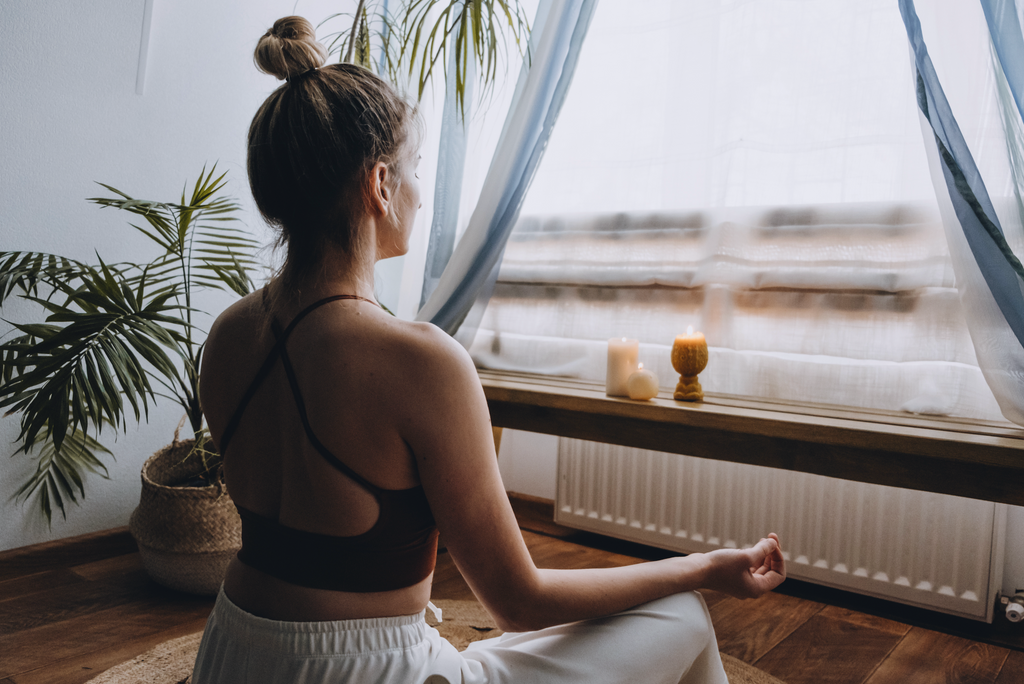Self-care can pretty much be summed up by the term itself — caring for yourself. And while prioritizing self-care might seem like common sense, it’s often the first to go when we’re faced with challenging times, whether that be from relationship difficulties, a job loss, or day-to-day struggles, so it’s important to try and prioritize the practice rather than view it as an afterthought.
We connected with some experts on the subject, and whether you're a self-care guru or looking to revamp your wellness routine, you'll want their advice. Keep reading to find out more about self-care, ways to better look after yourself and how to tackle any obstacles you may feel are in the way of doing so.

What defines self-care?
So, what exactly is self-care? Paula Gill Lopez, PhD, associate professor psychology at Fairfield University in Connecticut, shares that her research definition of self-care is the “intentional, proactive pursuit of integrated wellness; balancing mind, body and spirit personally and professionally.”
According to Gill Lopez, there are two types of self-care: temporary and enduring. Temporary self-care releases "feel-good" hormones when the strategy is practiced (but then these hormones subside afterward), such as spending time with friends or reading for pleasure, while enduring self-care is practice that makes a lasting change in your life, such as practicing mindfulness or getting into the habit of regular exercise, Gill Lopez tells Lively.
Why is self-care important?
Even though conversations around the importance of mental health have gained popularity, many of us still find ourselves in a “mind-over-matter” trap, says Stephanie Olarte, PhD, a licensed psychologist based in Maryland.
“Almost daily, I am meeting new folks who genuinely believe they can talk themselves out of being stressed out — however, when we neglect our own basic psychological and biological needs, everything suffers,” Olarte explains, adding that doing so can have more significant consequences than we may think, including challenges with interpersonal relationships and our professional lives.
“Self-care is ultimately what we do/give ourselves that makes us feel cared for and like we belong as part of the world,” Serena Goldstein, ND, naturopathic doctor tells Lively. “It is the ability to fulfill our needs on a physical level and the time we take to connect to ourselves on a more spiritual level, such as reflecting and discovering ways we can continue to grow and evolve.”
This is an important point because in this sense we can take a look at self-care as not just something to check off your to-do list, but a chance to consider what practices and mindset will nourish your own body, mind and soul to help with feeling a sense of accomplishment in this life. “Self-care is important not just for the practices and tools we can try out to see what helps us work through what we need, but as a marker to gauge where we are and how we feel about our soul's journey,” says Goldstein.

What are self-care strategies?
Here we take a look at the different kinds of self-care (spoiler: it’s not just about doing the occasional sheet mask):
Physical Self-Care
Physical self-care means acknowledging and honoring the mind-body connection Olarte tells Lively. “The reality is that issues like anxiety and stress can take a massive toll on the human body, and real, meaningful healing is unlikely to happen in the absence of physical self-care,” she notes. Olarte gives her clients checklists to remind them to drink water and move their bodies — two things that seem simple enough, but can easily be forgotten in the busy routines of life.
Emotional Self-Care
Emotional self-care allows us to become aware of our feelings and then move forward in such a way that honors these feelings. To this point, Ellen Bard, a work psychologist, writer and consultant (who has a new book out in January 2022 called Your Work Wellness Toolkit - Mindset Tips, Journaling and Rituals to Help You Thrive), suggests expanding your emotional vocabulary. You can do this by taking a look at Plutchik’s Wheel of Emotions which can help identify what you’re feeling in more granular detail.
“Naming an emotion can create a little distance between you and the feeling, so it doesn’t overpower you,” Bard says. “Once you’ve identified the emotions, try and track what happens in the world when you react with that emotion — you can then use this understanding to minimize the situations that bring up the emotions you want to feel less, and increase the situations that bring up emotions you want to feel more.”
Mental/Psychological Self-Care
The way we think has a great impact on our mental well-being, and mental or psychological self-care involves activities that help declutter the mind and maintain a healthy mental state. “Sometimes, the only way out is through,” says Goldstein. “That thought that goes around and around and won't let up, the mental 'what if's' to that uncomfortable scenario that may or may not have happened yet, the 'why me?' or self-doubt, and the inability to sit still to sleeping all the time — these are only some of the clues that there's a thought pattern that needs to be addressed, or some type of forgiveness or grace needs to occur.”
Spiritual Self Care
Spiritual self-care is where we can acknowledge our connection to ourselves, asking what we need in each moment and practicing those deep breaths to hear what messages may come about, Goldstein says. “It’s where we can reflect on the story of our life, give thanks for how far we've come, visualize and feel into where we'd like to go.”
What are examples of self-care?
As we mentioned above, when it comes to physically looking after yourself, things like drinking water and exercising are important, as well as getting plenty of restful sleep. Bard adds physical self-care might include “balancing (for example) eating a little cake, which gives you some short term self-care and pleasure, with an eye to the longer term — so being sure to consume nutritious food, the right macronutrients for you etc.” Sit in the sunlight, take a relaxing bath, dance around your living room, get a massage — there are lots of possibilities for physical self-care.
One significant suggestion that can fall under both emotional and psychological self-care is to take a break from our smartphones (and other screens). “These tiny magical pocket computers provide a black hole of entertainment — but rarely does it leave a person feeling recharged,” says Olarte. “When you think you don't have time for self-care practices including exercise, meditation or sleep, make sure you're not actually losing hours of your day reading the news or watching videos on your phone.”
Another is setting boundaries. “This is more than just telling your aunt that she can't comment on your weight at Thanksgiving dinner—it’s also about telling your boss that you're not answering emails during your off hours, or asking others in your home to pull their weight with household chores,” Olarte tells Lively.
Related Articles
In terms of taking care of ourselves spiritually, Golstein provides examples like lighting incense or candles, pulling oracle/tarot cards, exploring the idea of crystal healing or even just sitting in nature to focus on truly feeling centered. While those practices might not be for everyone, regularly journaling or practicing gratitude are other ways to partake in spiritual self-care.
What gets in the way of being able to practice self-care?
One hurdle that many of us may relate to in terms of being able to practice self-care is feeling like there’s not enough time. “Allow me to be the bearer of bad news: there will never be enough time,” says Olarte. “Not after the semester is over. Not after your kids move out. Not after your promotion. Not after Mercury goes direct.”
Instead, she suggests let go of this idea that there’s a “right time” for self-care and work it into your day however you can. “So if you can take two minutes in the shower to practice some deep breathing, do it — instead of doom-scrolling on your phone for 20 minutes before bed, do some neck stretches.”

Another struggle that Bard frequently comes across with clients is guilt. “It can seem indulgent to take care of ourselves when we are juggling the needs of those around us as well, but if you run yourself down, you’re not going to have the energy or will to support others — it’s the classic ‘put on your own life jacket’ first scenario.”
Finally, money is an obstacle that’s sometimes cited, but Bard notes the majority of ideas in her self-care books are about internal reflection and action, or involve the people, places and possessions already in your life. And, check out these tips for self-care on a budget.
“While money can help with some forms of self-care, it’s not the be all and end all — working on your self-talk is likely to have more of a long term positive effect than a day at the spa, while the second might still be enjoyable!”













